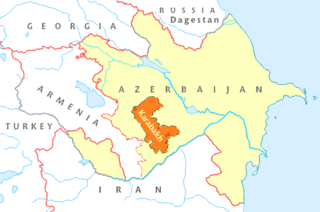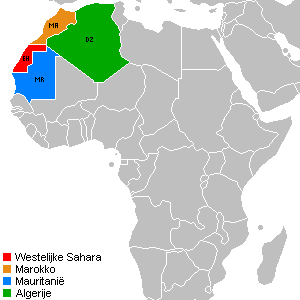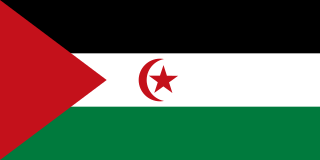
The member states of the United Nations comprise 193 sovereign states. The United Nations (UN) is the world's largest intergovernmental organization. All members have equal representation in the UN General Assembly.
A United Nations General Assembly resolution is a decision or declaration voted on by all member states of the United Nations in the General Assembly.

The Committee on the Exercise of the Inalienable Rights of the Palestinian People (CEIRPP) is a committee mandated by the United Nations General Assembly in order to promote the rights of the Palestinian people, support the peace process and to mobilize assistance to the Palestinian people.

The United Nations Commission on Science and Technology for Development (CSTD) is a subsidiary body of the Economic and Social Council (ECOSOC), one of the six main organs of the United Nations. It was established by the General Assembly in its resolution 46/235 and provides overall direction to the related programme of work. The commission is composed of 43 members and, pursuant to Economic and Social Council resolution 2002/37 meets on an annual basis and reports to the council. In accordance with council resolution 1993/75 the commission receives specialized and technical advice from ad hoc panels and workshops that meet between sessions of the commission to examine specific issues on science and technology for development. The UNCTAD secretariat provides substantive support to the commission.

United Nations Security Council resolution 1244, adopted on 10 June 1999, after recalling resolutions 1160 (1998), 1199 (1998), 1203 (1998) and 1239 (1999), authorised an international civil and military presence in the Federal Republic of Yugoslavia and established the United Nations Interim Administration Mission in Kosovo (UNMIK). It followed an agreement by Yugoslav President Slobodan Milošević to terms proposed by President of Finland Martti Ahtisaari and former Prime Minister of Russia Viktor Chernomyrdin on 8 June, involving withdrawal of all Yugoslav state forces from Kosovo.

United Nations Security Council Resolution 1696, adopted on July 31, 2006, after expressing concern at the intentions of the nuclear programme of Iran, the Council demanded that Iran halt its uranium enrichment programme.

The 2007 United Nations Security Council election was held on 16 October 2007 during the 62nd session of the United Nations General Assembly, held at UN Headquarters in New York City. The elections were for five non-permanent seats on the UN Security Council for two-year mandates commencing on 1 January 2008.

United Nations Security Council resolution 874, adopted unanimously on 14 October 1993, reaffirmed sovereignty and territorial integrity of the Azerbaijani Republic and of all other States in the region, called for the preservation of the ceasefire, cessation of hostilities and withdrawal of forces from recently occupied districts of the Republic of Azerbaijan, and reaffirmed resolutions 822 (1993) and 853 (1993). The Council expressed its concern at "...the conflict in and around the Nagorny Karabakh region of the Azerbaijani Republic, and of the tensions between the Republic of Armenia and the Azerbaijani Republic...", and called upon the parties to observe the ceasefire agreed with by the government of Russia and OSCE Minsk Group.

United Nations Security Council resolution 924, adopted unanimously on 1 June 1994, after considering the civil war in Yemen between the Yemeni government and Yemeni Socialist Party, the Council called for the immediate cessation of hostilities and for a fact-finding mission to be sent to the country.

United Nations Security Council resolution 1163, adopted unanimously on 17 April 1998, after reaffirming all previous resolutions on the Western Sahara, the Council extended the mandate of the United Nations Mission for the Referendum in Western Sahara (MINURSO) until 20 July 1998 so that it could proceed with voter identification tasks.

United Nations Security Council resolution 1263, adopted unanimously on 13 September 1999, after reaffirming all previous resolutions on the question of the Western Sahara, the Council extended the mandate of the United Nations Mission for the Referendum in Western Sahara (MINURSO) until 14 December 1999.
Organisation of the Islamic Conference Resolution 10/11, titled "The aggression of the Republic of Armenia against the Republic of Azerbaijan", is an Organisation of the Islamic Conference Resolution on Nagorno-Karabakh conflict adopted by its member states on March 13–14, 2008 during the OIC summit in Dakar, Senegal. The resolution, titled "Aggression by the Republic of Armenia against the Republic of Azerbaijan," aims to express concern over Armenia's aggression against Azerbaijan and to provide comprehensive support for the territorial integrity of the Republic of Azerbaijan. The Dakar conference is considered a "successful step" towards supporting Azerbaijan's just cause. It was during this session that the new Charter of the Islamic Cooperation Organization was adopted, and in the section on the purposes and objectives of this international organization, it was stipulated that the member states support the right of states under occupation to restore their territorial integrity.
Organisation of the Islamic Conference of Foreign Ministers Resolution 10/37, titled "The aggression of the Republic of Armenia against the Republic of Azerbaijan", is a set of three Organisation of the Islamic Conference resolutions on Nagorno-Karabakh conflict adopted at the 37th annual session of Foreign Ministers of OIC member states on May 18–20, 2010 held in Dushanbe, Tajikistan. The session was attended by 80 delegations from member states, observer states and international organizations.

The United Nations Supervision Mission in Syria (UNSMIS) was a United Nations peacekeeping mission in Syria, set up in 2012 as a result of United Nations Security Council Resolution 2043 in response to the Syrian Civil War. It was commanded by Norwegian Major General Robert Mood until 20 July 2012 followed by Lieutenant General Babacar Gaye from Senegal. Although observers remain in the country, Mood suspended their mission on June 16, 2012, citing "escalating violence". Observers will conduct no further patrols and stay in their current positions until the suspension is lifted. On 20 July 2012, the Security Council extended UNSMIS for a final period of 30 days. According to resolution 2059, the Council would only consider more extensions in the event that the Secretary-General reports and the Security Council confirms the cessation of the use of heavy weapons and a reduction in the level of violence sufficient by all sides to allow UNSMIS to implement its mandate.

The 1973 United Nations Security Council election was held on 15 October 1973 during the Twenty-eighth session of the United Nations General Assembly, held at United Nations Headquarters in New York City. The General Assembly elected the Byelorussian SSR, Cameroon, Costa Rica, Iraq, and Mauritania, as the five new non-permanent members of the UN Security Council for two-year mandates commencing on 1 January 1974. This was the first election of Cameroon, Costa Rica and Mauritania and the only election of Byelorussian SSR into the council.
The following lists events that happened during 1960 in Mauritania.

United Nations Security Council Resolution 2231 was a 20 July 2015 resolution endorsing the Joint Comprehensive Plan of Action on the nuclear program of Iran. It sets out an inspection process and schedule while also preparing for the removal of United Nations sanctions against Iran. The 15 nations on the Security Council unanimously endorsed the resolution, which had been negotiated by the permanent members of the United Nations Security Council—China, France, Russia, the United Kingdom, and the United States—plus Germany, the European Union, and Iran.

Sahrawi nationalism is a political ideology that seeks self-determination of the Sahrawi people, the indigenous population of Western Sahara. It has historically been represented by the Polisario Front. It came as a reaction against Spanish colonialist policies imposed from 1958 on, and subsequently in reaction to the Mauritanian and Moroccan invasions of 1975.

Sahrawi Arab Democratic Republic–Spain relations are the current and historical relations between the Sahrawi Arab Democratic Republic and Spain.












